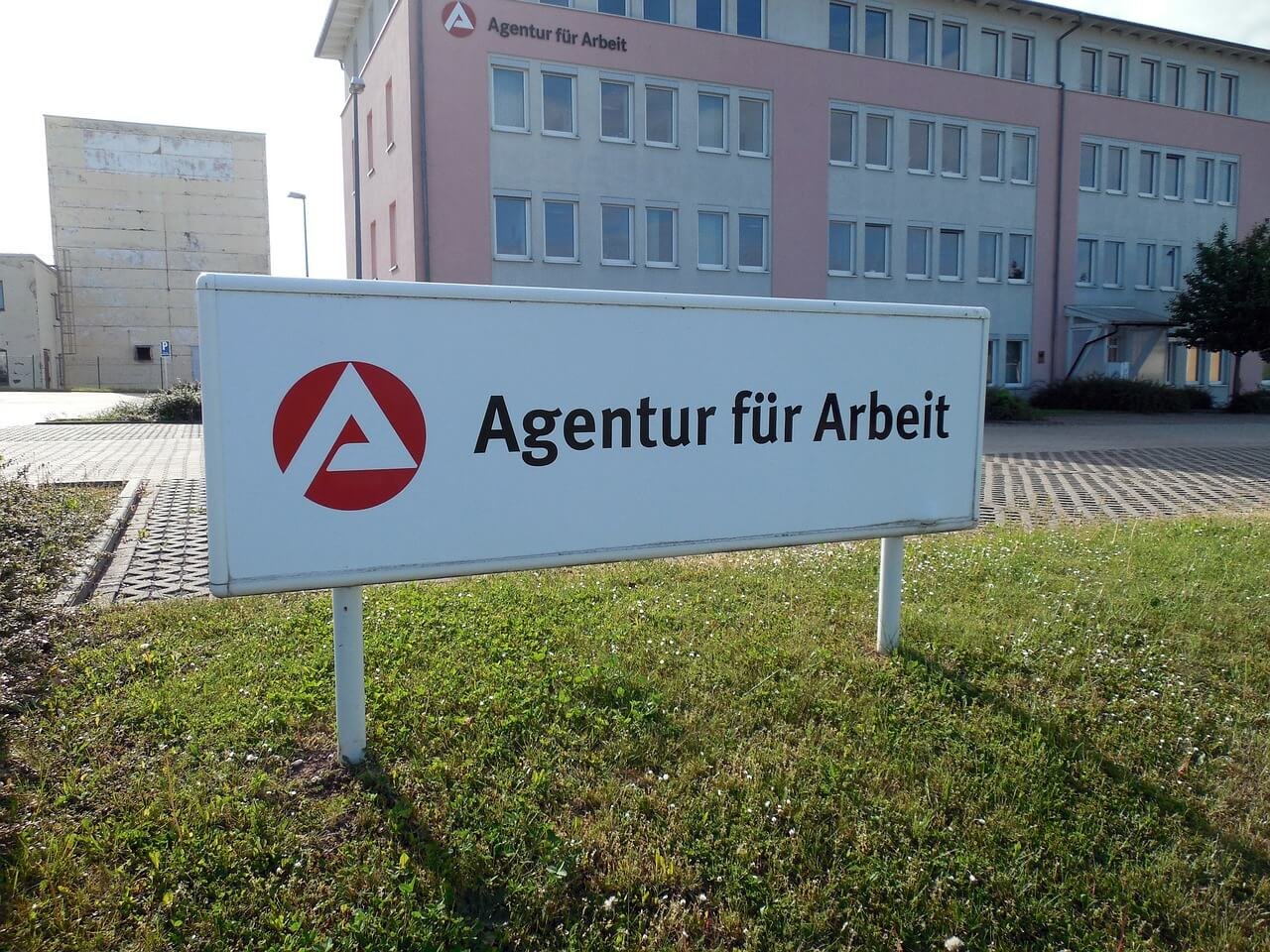
Germany provides several residence permits for non-EU/EEA nationals who plan to stay longer than 90 days. Whether your purpose is work, study, research, self-employment, or family reunification, each permit comes with specific eligibility criteria and application steps you must follow. But navigating the system isn’t easy. Bureaucratic hurdles, outdated processes, soaring demand, and limited staffing at the Ausländerbehörde can easily turn your application into an endless waiting game. In fact, some applications are simply never processed at all. The system might not be perfect, but there are things you can do to get your residence permits in Germany faster. This article has the details.
Calculate your severance pay in minutes
Find out your potential severance pay based on your individual situation
Who Needs a Residence Permit in Germany?
If you’re a non-EU or non-EEA national and planning to stay in Germany for more than 90 days, you’ll need to apply for a residence permit. Citizens of the EU and EEA, on the other hand, are exempt from needing a permit — but they are still required to register their address (Anmeldung) shortly after arriving. Swiss citizens are in a slightly different category: they don’t need a residence permit either, but like EU/EEA citizens, they must register their residence with the local authorities. Germany offers a variety of residence permits, depending on purposes and durations.
Temporary Permits
Temporary residence permits are issued for particular reasons such as study, work, research, or family reunification. Each permit comes with its conditions and validity period:
If you’re coming to Germany for studies, you’ll receive a permit that’s valid for the duration of your academic program. It also allows you to work part-time — up to 120 full days or 240 half days per year. For those pursuing vocational training, a residence permit is issued for the training period, with limited working hours allowed alongside your studies.
If you have a job offer, you can apply for an employment residence permit, which typically matches the duration of your employment contract. Highly skilled workers can apply for the EU Blue Card, provided they have recognized qualifications and a job offer meeting the required salary thresholds. Qualified professionals seeking employment can apply for a job-seeking residence permit, which gives you six months to find a job — but be aware, you’re not allowed to work during this time. Researchers coming to Germany with a hosting agreement can get a researcher’s residence permit, valid for the duration of the research project.
Entrepreneurs can apply for a self-employment permit, typically valid for up to three years, provided they can demonstrate that their business idea is economically viable and in Germany’s interest.
Finally, family reunification permits allow family members to join residents living in Germany. The specific conditions depend on the residence status of the family member already in Germany.
Permanent Residence Permits
For those looking to stay indefinitely, Germany offers options for permanent residency, granting unrestricted access to the labor market. The settlement permit is available to individuals who have lived in Germany for five years, have a stable income, have made contributions to the pension system, and can demonstrate sufficient German language skills (typically B1 level). Alternatively, the EU long-term residence permit offers similar benefits but also provides mobility rights within the European Union.
Transitioning to Permanent Residency
To be eligible for permanent residency, most applicants must meet several key requirements: five years of continuous legal residence, financial independence with a stable income, active contributions to the pension system, proof of sufficient living space, German language skills at a B1 level, and basic knowledge of Germany’s legal and social systems. Some individuals may qualify for permanent residency faster:
- EU Blue Card holders can transition after 33 months, or in just 21 months if they achieve B1-level German proficiency.
- Graduates from German institutions may apply after two years of employment in their field of study.
- Highly qualified professionals might be eligible immediately after beginning their employment.
- Self-employed individuals who successfully operate their business for three years may also qualify for permanent residence earlier than usual.

Free initial consultation with an employment lawyer
- Free, no-obligation initial consultation with a lawyer
- Receive a callback within 1–2 hours
- How to negotiate a higher severance payment
The process to obtain a permit
… It really depends. For most people, it’s a pain. For some, it never ends. But there are lean and super-fast processes to obtain a residence permit, depending on where you are and who you work with. Smaller cities are generally more efficient. There are huge regional differences and sometimes you just need to talk to the right clerk to get things done. And there are some offices – like Stuttgart, for example, which are notorious for being slow, inefficient and not overly cooperative. But then, moving just a few kilometers away can make all the difference. But first, let’s take a look at the root causes:
Why does it take so long to get a residence permit in Germany?
Overarching topics are lack of digitalization and super complex rules. The entire process is highly manual. Otherwise, it depends on where you are. High demand, staff shortages
Wherever you go in Germany, the work is still done manually — hardly digitized yet — which slows things down compared to other countries. Also, German immigration law has more detailed requirements (visa type, financial proof, insurance, accommodation, etc.).
Otherwise, it depends where you are. Germany is a popular destination for work, study, and family life everywhere. So immigration offices (Ausländerbehörde) are often overwhelmed. But this is especially true in big cities like Berlin, Munich, or Frankfurt. Also, many immigration offices don’t have enough employees to process applications quickly, like Stuttgart or Nurnberg.
Last, but not least: If your application is incomplete or something needs clarification, it delays the whole process because you might have to submit more paperwork.
The things you can do to accelerate your residence permit process
Choose wisely
If you are not yet in Germany, choose your location wisely. It makes a huge difference mainly because each city or region in Germany runs its own immigration office (Ausländerbehörde) — and the quality, speed, and efficiency vary a lot depending on where you apply.
Try to avoid big cities, especially Stuttgart, Nürnberg, Frankfurt am Main, Berlin, if you can. Sounds complicated, but it can be quite easy – the competent authority is the one of your residence. In other words, where you normally live. If you’re applying from abroad, the office for the place you plan to move to will handle it. And just taking your future residence in Esslingen or Ludwigsburg (a few kilometers out) could make your life easier.
Let your employer help you
Having your employer support your application can be a huge advantage, especially for bigger employers. Employers have a major interest in full compliance. Bigger employers are typically more familiar with getting your residence permits in Germany and immigration processes in general. They know exactly which documents are needed, and often have direct contacts at immigration offices. They can help avoid paperwork mistakes, speed up approvals through fast-track procedures, and handle communication with authorities on your behalf. Trying to manage everything on your own usually means dealing with confusing rules, longer waiting periods, and a higher risk of delays or rejections. Making the whole process far more stressful and uncertain.
Lawyer up
While an immigration lawyer can’t guarantee super-fast processing, they can definitely help speed up the process. By making sure your application is complete, accurate, and fully backed up, they can prevent delays from missing or incorrect documents. Plus, with their knowledge of the system, they can nudge the immigration office to move things along faster. Which could mean a quicker decision for you. If the Ausländerbehörde delays your application, a lawyer can intervene by escalating the matter, filing complaints, or taking legal action. Which can help a lot.
Complete your paperwork early
To get your residence permit in Germany faster, make sure you prepare all necessary documents in advance, book your appointment early. Stay informed about processing times. Additionally, submitting online applications and ensuring your financial and health insurance requirements are met can help streamline the process.

Free initial consultation with an employment lawyer
- Free, no-obligation initial consultation with a lawyer
- Receive a callback within 1–2 hours
- How to negotiate a higher severance payment






